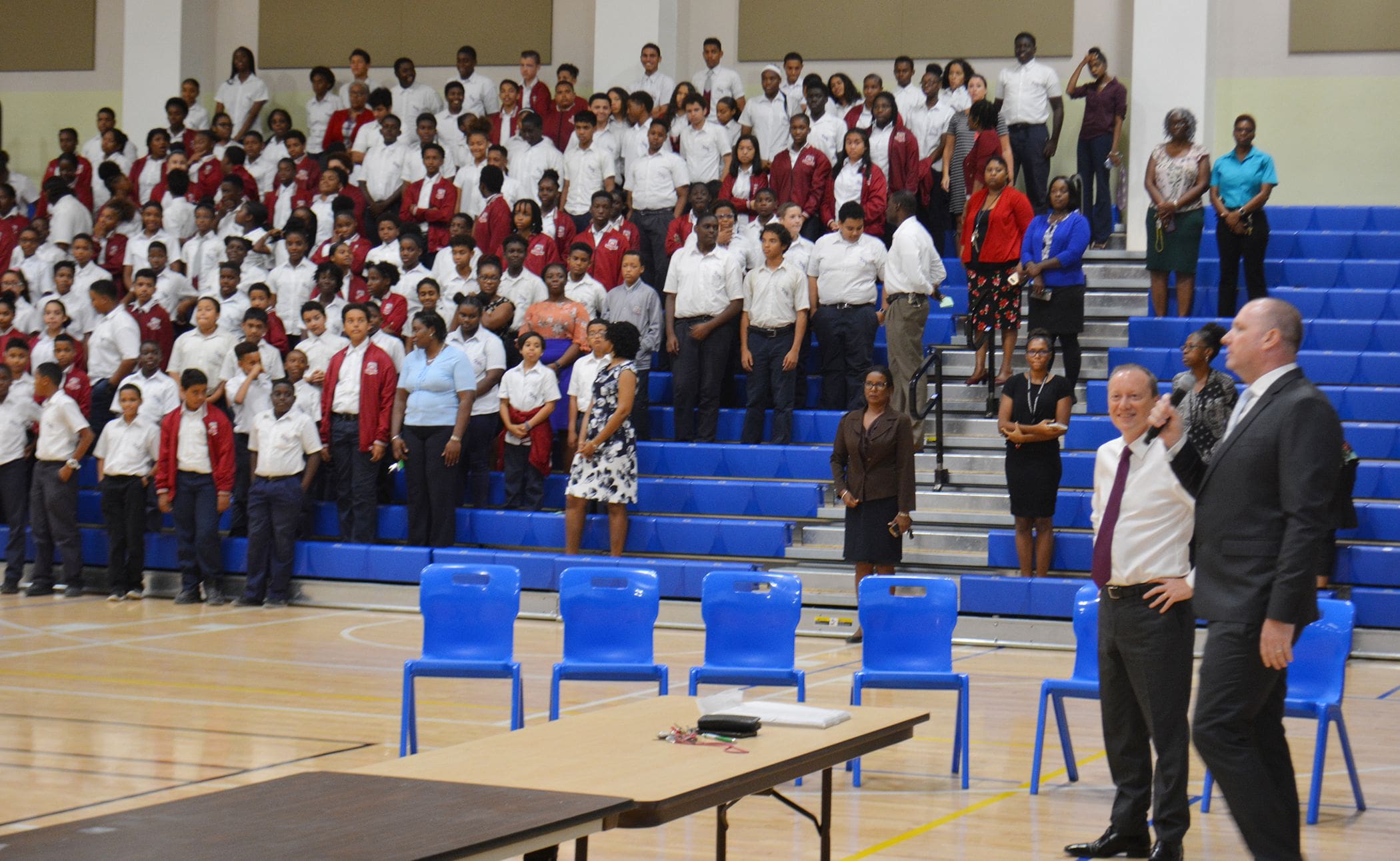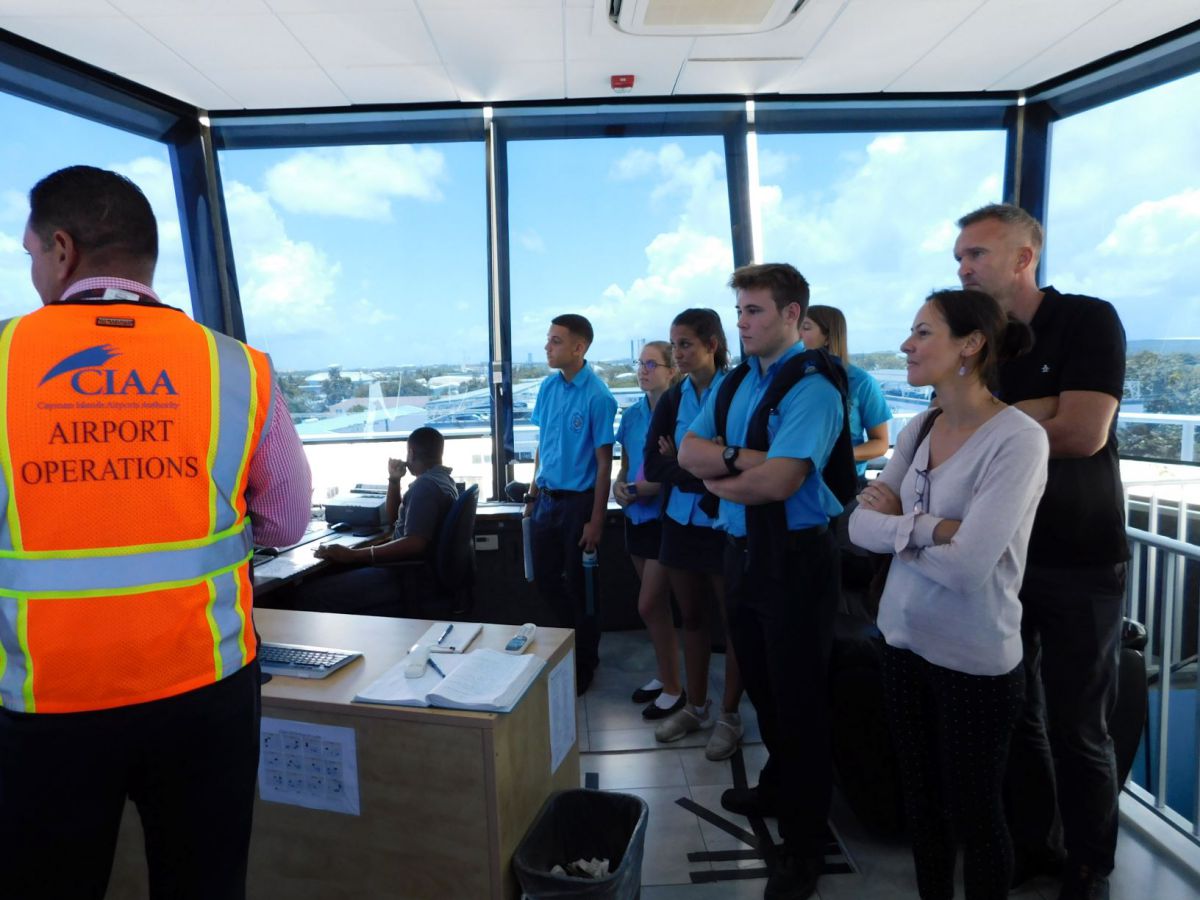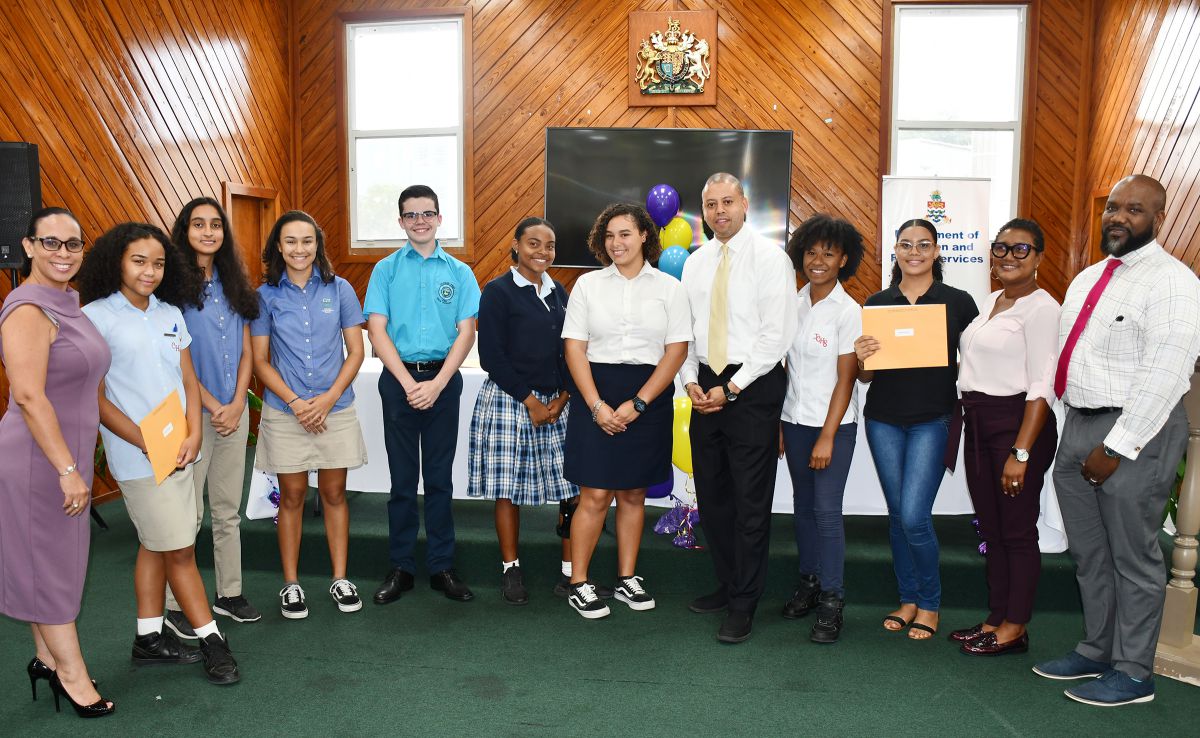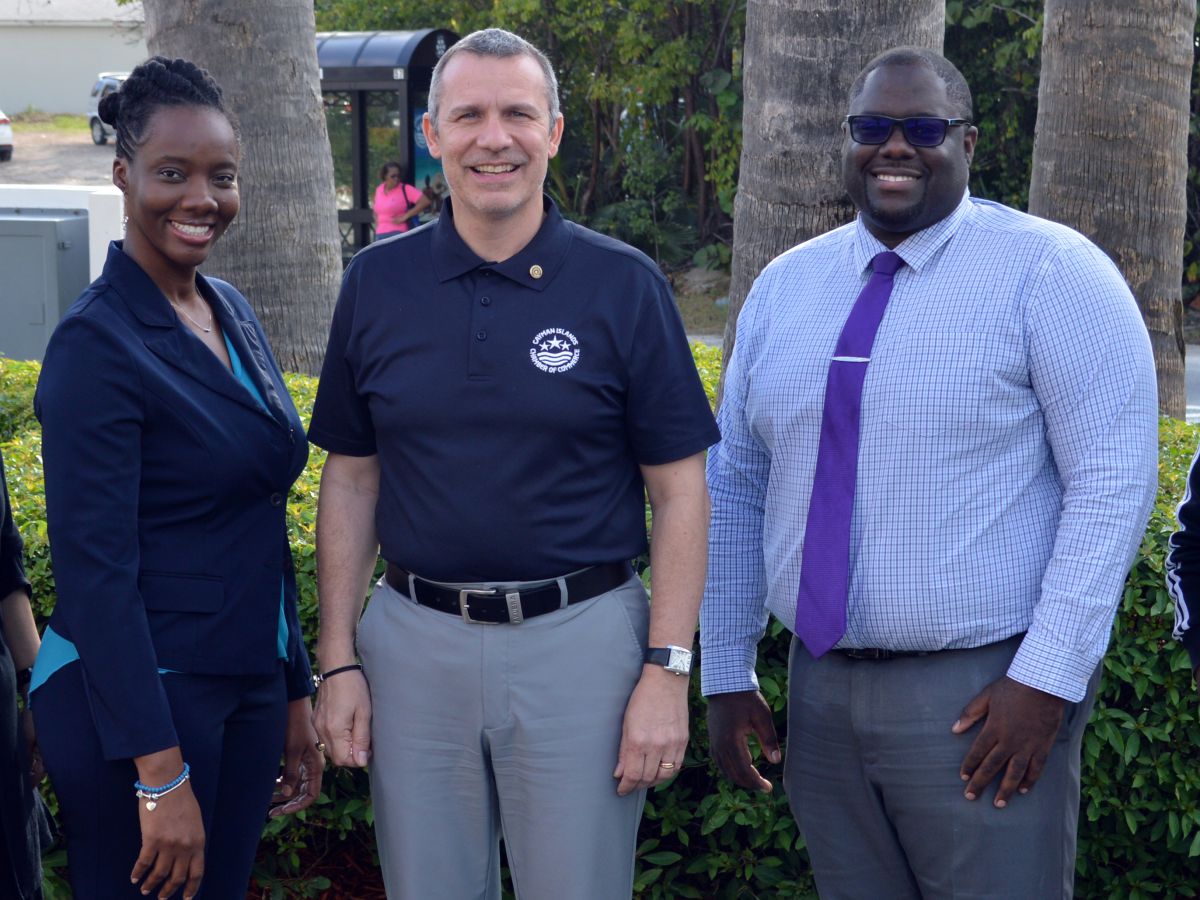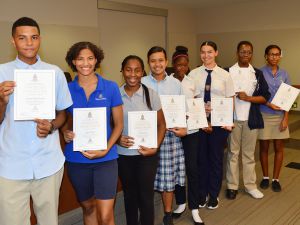
(L-R) Debaters Martin Diaz Pascual, Layah Ebanks, Brittney Evans, Micah Ebanks, Leah Robinson, Cassidy Connor, Tyra Iton and Vitoria Buttrum
(CNS Local Life): Eight young people, each representing a different school, took part in this year’s teen panel debate on healthy relationships, held Wednesday, 10 May. The Department of Children and Family Services (DCFS) organised the event, which is a regular fixture on the annual Child Month calendar. Local high schools were each asked to put forward a panellist to take part in the forum, which was filmed at the Government Administration Building.
In the run-up to the panel, participants were given pre-prepared questions. They encouraged to do research and talk to their peers so that they could take an active part in the debate, stated a government press release.
Ranging in age from 14 to 18 years old, panellists split into two groups with the discussions moderated by Cayman’s 2017/2019 CARICOM Youth Ambassadors, Camille Angel and Andrel Harris.
Each group answered six questions including what elements make up a healthy relationship, what advice they would give a friend in an unhealthy relationship and what they thought the age of consent should be locally and why.
Layman E. Scott student Cassidy Connor, 16, said she was honoured to have been selected to represent Cayman Brac youth.
“It was a great opportunity of us all to express our opinions and talk deeply about healthy relationships. Everyone involved really listened to what was being said and you could tell they had prepared well. We all got a chance to have our say. I found it very educational,” she said.
Prompted by their research, panellists even questioned the anomaly of why the age of consent is 14 for boys and 16 for girls.
Talking about the importance of the teen panel, co-ordinator Kai Matthews-Mowatt of DCFS said, “During some lively exchanges, our panellists got to air their views in a mature manner without the worry of appearing self-conscious due to peer pressure by classmates and friends.
“Teen panels are also an excellent way for us at DCFS to learn what teenagers are thinking on specific subjects. These insights keep us in touch with how teens think on such matters and can often inform policies designed to target this cohort.”

